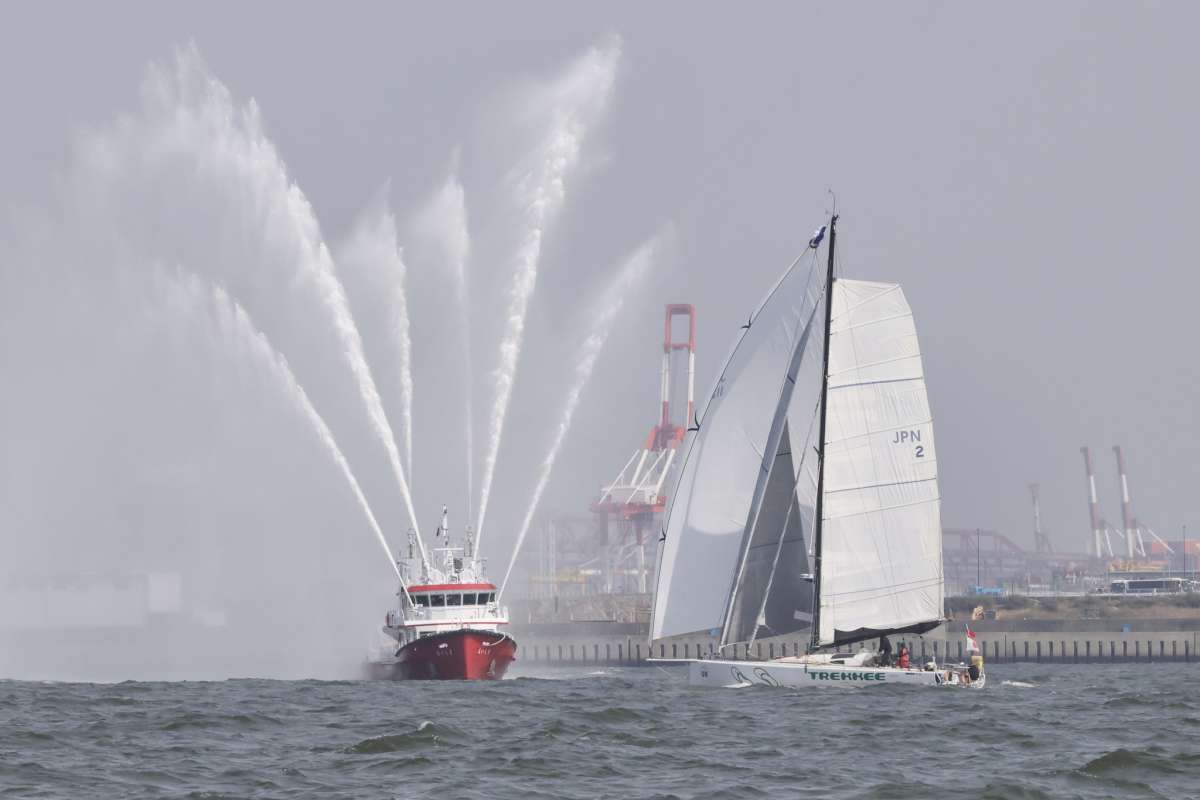Twenty-four hours into the 10th Route du Rhum and strong words are being used to describe the race so far: vicious, violent, stormy, raging.
The fleet battled through extreme conditions during the first night, with the wind continually changing in strength and direction, and seas as rough as can be.
Like many of his competitors, Yann Guichard, the skipper of the largest trimaran in the race, had to contend with immensely challenging conditions. As soon as the starting hooter sounded at 2pm in Saint-Malo, he was obliged to perform one manoeuvre after another. As the wind became violent, he was forced to ride out the stormy conditions.
Unfortunately not everyone has made it though these first few hours of racing. Various boats have already been damaged and, yesterday evening, Sodebo Ultim' collided with a cargo ship, forcing the skipper to divert to Roscoff in Brittany. Loick Peyron currently leads the seven maxi-trimarans still in the race. At 5pm CET, Yann had moved back up the field to 2nd position, with the other Ultimes in close proximity.
The sailors got no sleep last night or this morning and conditions remain difficult as they head towards the Iberian peninsula. Not so much because of the wind speeds (25 knot westerlies), but because of the sea conditions, with 5 metre waves coming in at a 45 degree angle. Speaking to the race control centre during this morning's 10am link-up, Yann described the first 24 hours of the race so far:
“It was tough, but I think it was the same for everyone. I had to weave between cargo ships and fishing boats, which obviously isn't easy with such a massive boat. There were a few hairy moments, but I didn't have any problems. I decided to take it steady and not go too fast, given the sea conditions and all the manoeuvres I had to perform. It was a pretty gruelling first night. I am on a starboard tack, but the cross sea makes it difficult for me and the boat.
“Manoeuvres take a long time when wind speeds are in excess of 25-30 knots. If you make the slightest mistake they can take an hour and a half instead of an hour. That's kind of what happened last night. So it's not easy. I should be able to sail in a straight line now and I'll be able to pick up speed once the seas calm down. Right now we have 4 to 5 metre waves coming almost directly head on. At 11am the clouds began to clear, it was nice to see blue skies windward. But there are some pretty strong squalls. Winds are averaging 25 knots with 30 knot squalls, but the main problem is the raging sea.
“I still managed to eat during the night and I don't feel sick. Obviously it's tough physically – I haven't slept a wink yet. Once we finish talking I'll go and take a 10-15 minute nap. I need to recover, but everything's going well, aside from the tiredness, which is normal. I'll be able to get some rest when I'm off the coast of Portugal. The conditions will still be tough until Cape Finisterre. The skies will clear a bit, but we won’t have tailwinds straight away. The next 30 hours will remain difficult for me, especially for the boat. Every time we hit a wave I feel for her. She crashes into it, and you think she'll break apart. The conditions are still violent, especially for a boat this size. The bow flies 15 metres into the air. It's pretty impressive! But everything is fine right for the time being.”
Spindrift 2 is currently sailing towards Cape Finisterre in moderate to strong westerlies (20-25 knots), but squalls are making the wind speeds vary by 15-30 knots. It is not easy for Yann to travel quickly without taking significant risks. The wind is set to pick up again as the boats pass Cape Finisterre, so Yann and his rivals will have to be vigilant for another night. Their first strategic decision also lies ahead: whether to follow the great circle route more closely (i.e. the shortest route) more, or to take a more southerly route, hugging the Portuguese coastline.
– Spindrift Media
























